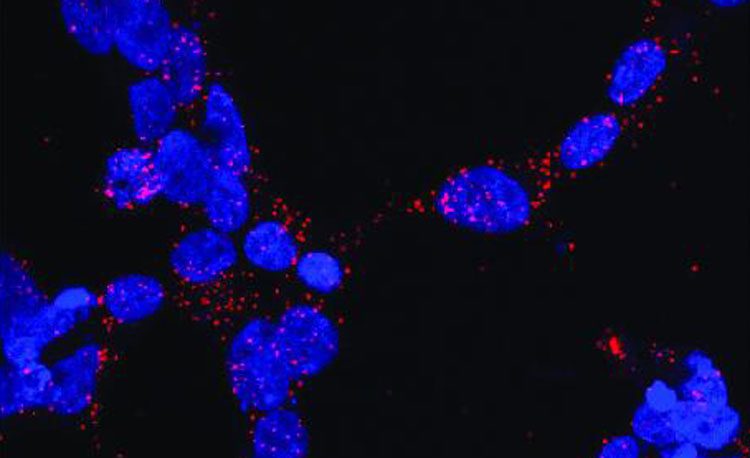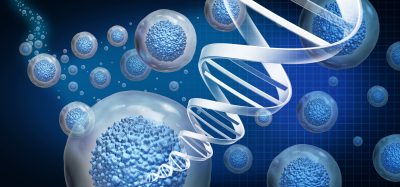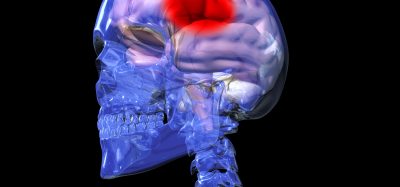Therapeutic target for Kennedy’s disease and prostate cancer proposed
Posted: 9 August 2019 | Rachael Harper (Drug Target Review) | No comments yet
A chaperone protein has been identified as a possible therapeutic target for the treatment of Kennedy’s disease and prostate cancer.


Interaction of the androgen receptor and chaperone Hsp70 (in red) inside the cell. Blue indicates cell nuclei (credit: Xavier Salvatella, IRB Barcelona).
A study has identified chaperone protein Hps70 as an attractive therapeutic target for the treatment of Kennedy’s disease and of castration-resistant prostate cancer.
The results may also be useful in the search for a treatment for castration-resistant prostate cancer
Scientists at the Institute for Research in Biomedicine (IRB Barcelona) used sophisticated biophysics, nuclear magnetic resonance (NMR) and experiments with human cell cultures, to discover that the chaperone proteins Hsp40 and Hsp70 bind strongly to a region of the androgen receptor that is susceptible to forming toxic aggregates. This interaction between the chaperones and the receptor prevents the formation of these deposits and facilitates their clearance.
To confirm whether the increase in the activity of these chaperones decreases the formation of toxic aggregates and whether these proteins are therefore useful for the treatment of Kennedy`s disease, the scientists performed experiments in mouse models.
“The results obtained in mice confirm that compounds that activate Hsp70 lead to a decrease in the formation of the aggregates,” said CREA researcher Xavier Salvatella, Head of the Laboratory of Molecular Biophysics at IRB Barcelona. “Therefore the chaperone Hsp70 emerges as a possible therapeutic target for Kennedy’s disease.”
The results may also be useful in the search for a treatment for castration-resistant prostate cancer. In cells resistant to current treatments, the binding site of Hsp40 and Hsp70 in the androgen receptor is not altered and therefore these chaperones may also serve as a therapeutic target in this disease.
The study was published in Nature Communication.
Related topics
Analysis, Protein, Research & Development, Targets, Therapeutics
Related conditions
Kennedy's disease, Prostate cancer
Related organisations
Research in Biomedicine (IRB Barcelona)
Related people
Xavier Salvatella








